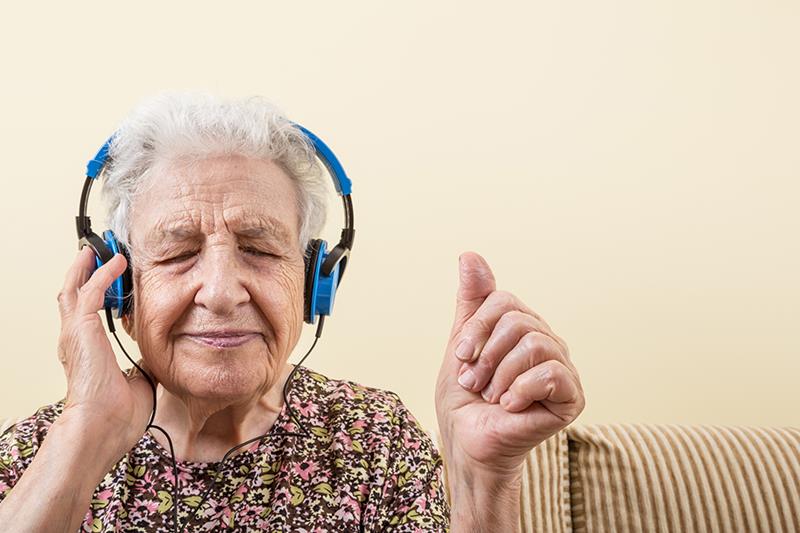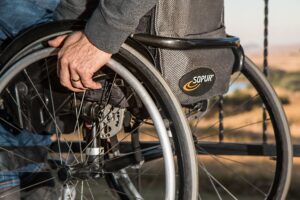A wide range of therapies can assist seniors in remaining alert, focused, happy, and healthy. For example, physical therapy builds muscles and improves mobility, whereas speech therapy and other services focus on communication concerns.
A complementary and alternative therapy that uses the power of music and song to improve the health and wellness of seniors is another popular treatment.
What is Senior Music Therapy?
Music therapy uses music’s uplifting qualities to help seniors improve their mental health and overall well-being. Professionals trained and accredited sing, perform songs or instruments, or assist seniors in writing their songs and music. This alternative health strategy may help aging elders, particularly those suffering from anxiety, sadness, dementia, or Alzheimer’s disease, improve their quality of life.
Social and emotional functioning, cerebral thinking, and physical health can all benefit from music therapy. Music therapy can also be utilized in hospice or palliative care.
Seniors’ Benefits from Music Therapy
Here are some of the advantages of music therapy, as well as how a senior care provider can assist your elderly loved one in getting the most out of it:
- Enhances Cognitive Performance – Music, songs, and playing an instrument have been demonstrated in studies to boost blood flow in specific parts of the brain. Increased blood flow helps the brain function by transporting oxygen and nutrients. Music activates both the left and right sides of the brain simultaneously, which improves memory. Memory can be improved by activating both hemispheres of the brain.
- Encourages Communication – Music can help the elderly improve their verbal abilities and encourage them to express themselves through singing, humming, or moving their hands. Communication improves as a result of this enhanced expression.
- Depression is Lessened – Singing and playing an instrument, as well as other forms of music, can help to alleviate depression and anxiety. Music with upbeat tones and catchy beats can naturally elevate moods and foster a happy attitude.
- Stress is Lessened – In recent research, music of 60 beats per minute has been demonstrated to synchronize the brain with the beat. Alpha brainwaves, which are present when we are relaxed, are produced due to this synchronization.
- It Motivates People to Take Action – People’s mobility and their physical daily activities reduce as they age, resulting in muscular atrophy. Music, with its inherent rhythm, encourages movement and can assist elders in moving their feet and hands to help circulate blood.
- Strengthens Social Ties & Encourages Participation – Music therapy can be done in a group environment, which strengthens social bonds through a shared activity. Seniors can also use music to listen and be present at the moment, allowing them to participate more fully in their daily lives.
- Increased Self-Confidence – Through interaction and sentiments of self-accomplishment and positivism, singing and listening to music can boost self-esteem and confidence.
- Rehabilitation of the Physical Body – Music not only improves mood but can also help with physical rehabilitation. Music encourages movement, which improves mobility. Music therapy can help seniors heal from an injury, arthritis, or another chronic illness by encouraging hand and foot mobility.
What Can an In-Home Caregiver Do to Support Music Therapy?
Music can bring back good memories, improve one’s mood, and reduce anxiety and despair. Even if in-home caregivers aren’t qualified music therapists, they can assist your loved one in reaping the full advantages of music therapy at home.
In-home carers can help your loved one listen to and enjoy music in the privacy of their own home. They can follow a qualified music therapist’s advice, making sure to listen to the right music at the right volume for the right time. They can also encourage your senior loved ones to walk, sing, and enjoy themselves.
Maintaining the entire health and well-being of seniors at home requires keeping the brain busy. Consider incorporating music therapy into your loved one’s daily routine and allowing them to benefit from its calming and harmonious effects.
Contact EasyLiving
If you’d like to learn more about how senior care plans might benefit your senior loved ones, contact your local EasyLiving office now.







